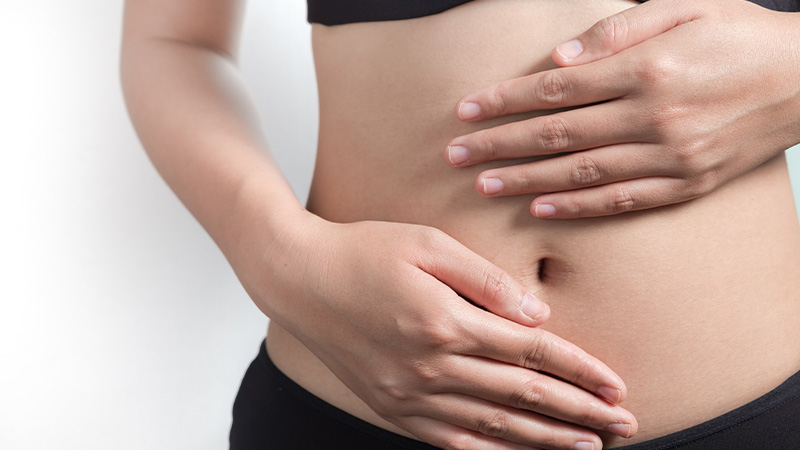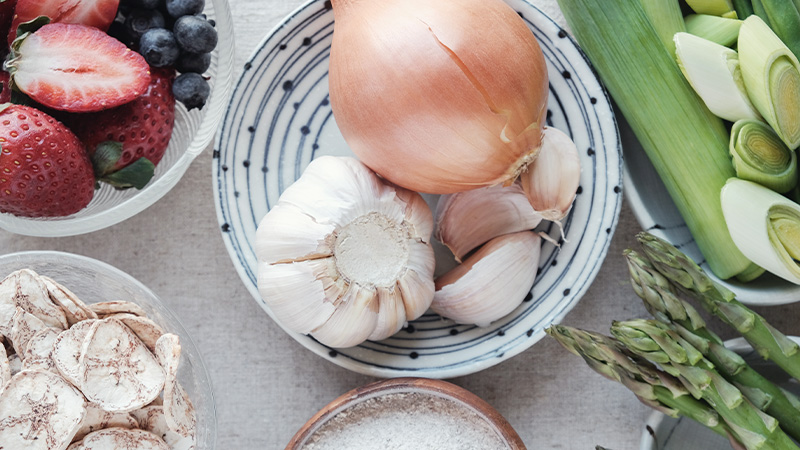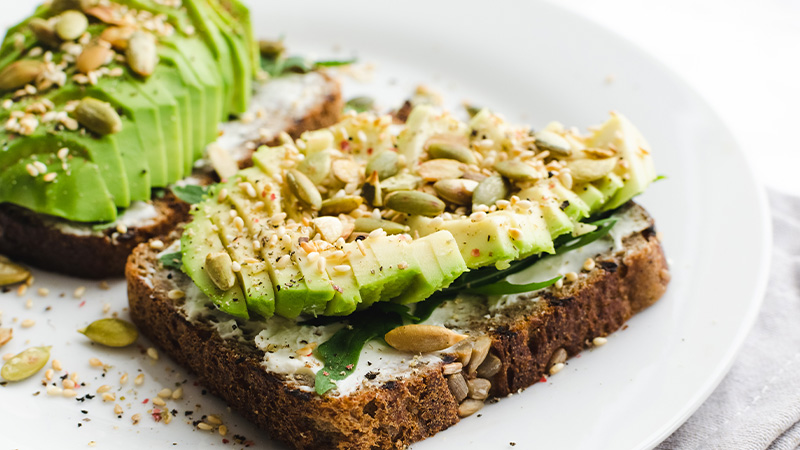If you’d like to say goodbye to bloating stomachs and other tummy troubles for good, you’ll need to get your gut health in order. Here, gastroenterologists in Singapore share how you can improve your digestive health naturally with certain dietary and lifestyle changes including probiotics.
What is gut health and why does it matter?
The human intestines have billions of bacteria, some harmful and some helpful. These microorganisms play a vital role in digestion, as well as immune function and brain-gut communication, explains DR CHRISTOPHER KONG SAN CHOON, a senior consultant and gastroenterology and liver specialist at StarMed Specialist Centre.

“Gut health” refers to the balance of these microorganisms that live in our digestive system. An imbalance of microbiota is linked to a range of health issues including diabetes, high cholesterol, heart disease, inflammatory bowel conditions, autoimmune disorders and asthma, as well as food allergies and intolerances.
This is why sustaining the correct balance of microbiota is fundamental for our physical and mental health, our immunity and overall disease prevention, according to gastroenterologist DR ANDREA RAJNAKOVA of Andrea’s Digestive, Colon, Liver and Gallbladder Clinic.
Everyone’s gut microbiota changes over time, as it’s affected by age, environmental factors and diet. While we can’t control every single factor that influences our digestive tract, we do have control over what we put into our bodies, and the capacity to make healthier lifestyle choices – which means we have some of the power when it comes to influencing the state of our gut.
Not sure where to start? Here are eight things you can do to improve your digestive health naturally.
#1 Eat a diverse range of foods
A diverse microbiota is considered to be a healthy one – and a well-balanced diet that incorporates all food groups can help with that. Dr Andrea recommends:
- eating foods that contain healthy fats, such as olives, avocado oils, extra virgin olive oil, nuts, seeds and fish;
- eating plenty of fruit and vegetables (“the more colourful, the better!”);
- eating a small amount of complex carbohydrates – whole grains, vegetables, fruits and beans are great sources of energy, and should be chosen over white bread, white rice, pastries and overly processed foods; and
- consuming calcium-rich foods including kale, cabbage, broccoli, spring greens, bok choy and, of course, milk.

#2 Try a more plant-based diet
Research has shown that there’s a difference between the gut flora of vegetarians and that of meat-eaters, explains Dr Andrea. “Vegetarian or plant-based diets are associated with greater diversity in the gut microbiome and have a greater abundance of bacteria responsible for the long-term processing of fibres.”
While it isn’t necessary to cut out meat sources completely, Dr Andrea says that cutting back on meat consumption – even if it’s simply removing meat from one’s diet just once a week – can be very beneficial.
For this reason, she says it may be worth considering a flexitarian diet – one in which you follow a mostly vegetarian diet, but occasionally consume seafood or meat. This might mean abstaining from meat six days a week to one person, but going meatless only once a week to another.
“I think the flexitarian diet is a good compromise that offers flexibility,” says Dr Andrea. “Having the variety of animal proteins just a few times a week can provide an even better assortment of the different vitamins and minerals that a pure vegetarian diet lacks.”

#3 Stay hydrated with water
Staying hydrated is important to our overall health. And choosing water over sugary drinks and other beverages is key, says Dr Andrea. She suggests drinking at least two litres of water every single day.
“Coffee, tea, freshly squeezed fruit juices and low-fat milk can fit into a healthy diet, but are best consumed in moderation. Also, avoid instant beverages, including ones with sugar and artificial sweeteners like cola, fruit juice, bottled tea, some yoghurt drinks and flavoured milk, and energy drinks because they may cause bacterial imbalance in the gut.”

#4 Increase your intake of probiotics and prebiotics
Probiotics are live microorganisms that can improve or restore the gut flora, explains Dr Andrea. They can be found in fermented foods such as kimchi, sauerkraut, kombucha, tempeh and miso, and fermented dairy products such as yoghurt, kefir and buttermilk.
To boost the beneficial bacteria in your gut, you can also take probiotic dietary supplements, which can help reduce gastrointestinal discomfort, improve immune health and relieve constipation. But, since different types of probiotics may have different effects, it’s best to talk to your doctor about choosing the one that’s right for you.
Prebiotics are also beneficial, as they feed the “good bacteria” in your gut. Examples of prebiotic food sources include onions, garlic, leeks, bananas, barley, oats, asparagus and apples.
Andrea’s Digestive, Colon, Liver and Gallbladder Clinic
#21-11/12 Royal Square at Novena, 101 Irrawaddy Road
6264 2836 | andrea-digestive-clinic.com
This article first appeared in the April 2022 edition of Expat Living. You can purchase the latest issue or subscribe, so you never miss a copy!



